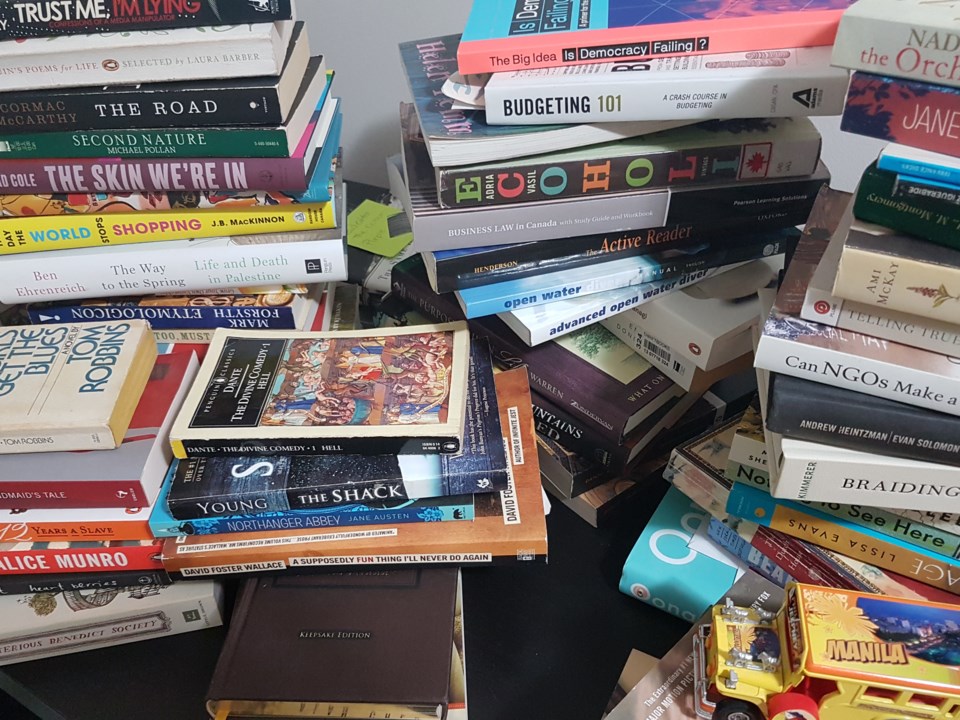It used to bring me anxiety to look over the countless books I had picked up at garage sales, book stores, library swaps or from hostel shelves while traveling. The stack of books I have read are far outweighed by those I have yet to consume.
But then I came across an article that released (most) of that tension. Tsundoku – that was the word that changed my perspective on the never-ending stacks of books I was acquiring. OK, well maybe not the word tsundoku itself, but the meaning behind that word.
The Japanese term means to acquire reading materials that you let pile up in your home and on your shelves without reading them. The expression accepts and embraces the fact that there will always be more knowledge and information than any one person can take in during a lifetime.
It helps to dismantle the belief that we know more than what we don’t know.
The term was born out of Japanese slang and grew into a common expression from 1868 to 1912, according to writer Jonathan Crow, who has written and researched the term and practice of tsundoku.
He says it combines elements of tsunde-oku, to pile things up getting them ready for later and then leaving them, and dokusho, which means reading books. An English term for this has recently been coined as well: the anti-library.
Anti-library, first appeared in the book Black Swan (which I also haven’t read yet in case you were wondering) by Nassim Taleb.
One of the most popular and insightful quotes pulled from that book describes the purpose of the anti-library perfectly.
“The library should contain as much of what you do not know as your financial means… allow you to put there. You will accumulate more knowledge and more books as you grow older, and the growing number of unread books on the shelves will look at you menacingly. Indeed, the more you know, the larger the rows of unread books. Let us call this collection of unread books an anti-library,” writes Taleb, as he describes the Italian writer Umberto Eco’s relationship with his own collection of literature.
So why does this bring me less anxiety? Well first it is nice to know that I am not the only nut out there collecting more books when I already have too many at home. But also, because I find the significance attached to tsundoku and the anti-library comforting.
Packing and unpacking has reinforced just how much my own anti-library has grown and changed over the years.
More than just the content between the front and back cover, each book has turned into a timestamp. When I hold one of my unread books, I can often remember who gave it to me, where I was when I purchased it and immediately, I go back in time.
The same is true of the books I have read. Both my read and unread books have become a paperbound timeline of my life.
From buying my first book, Falling Up by Shel Silverstein, through an elementary scholastic book sale program to finally finishing the book Seven Fallen Feathers by Tanya Talaga the day after Canada’s first National Day for Truth and Reconciliation.
There is so much information out there waiting to be absorbed. I’m learning to live with that — and my never-ending stack of books.



